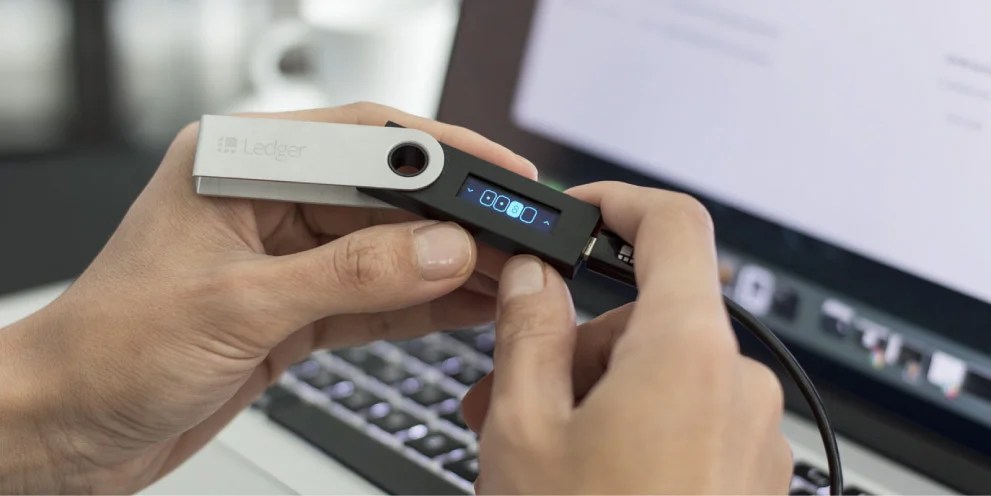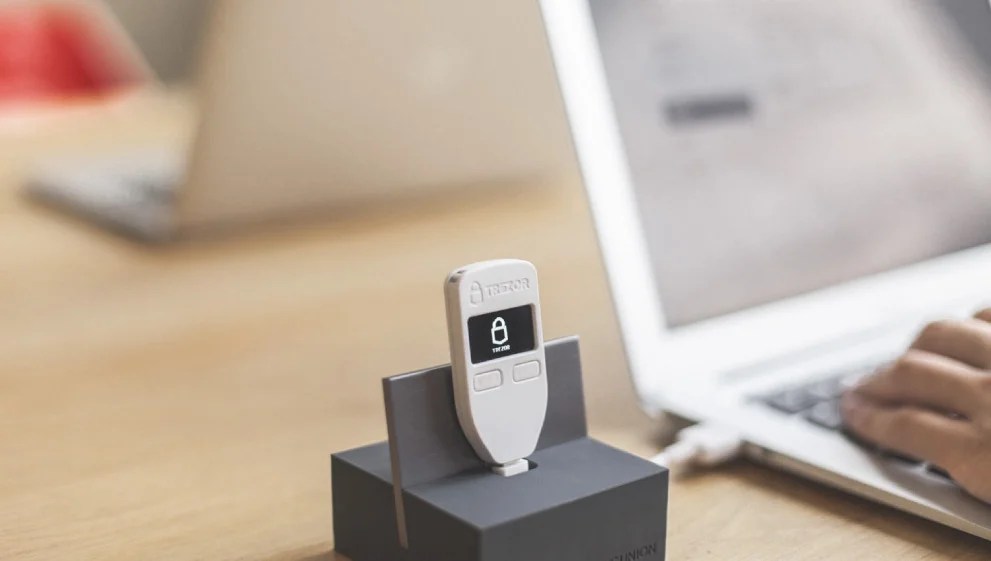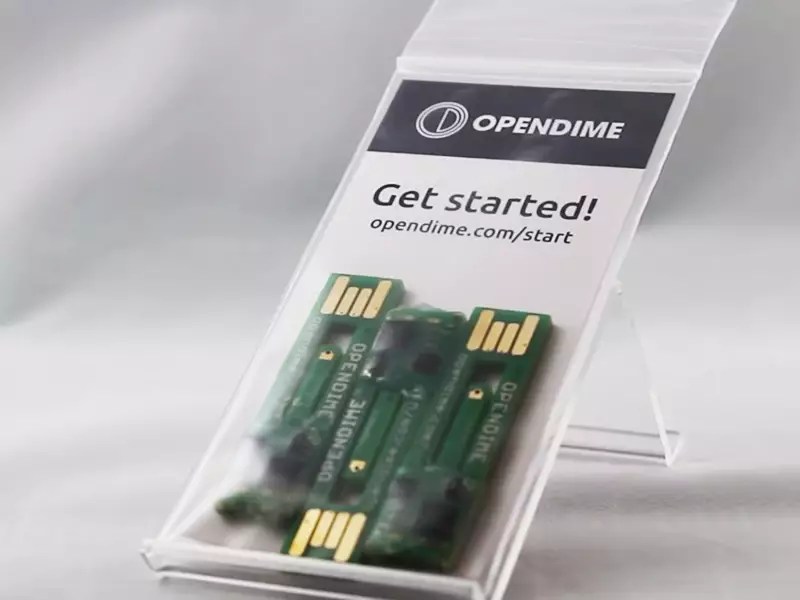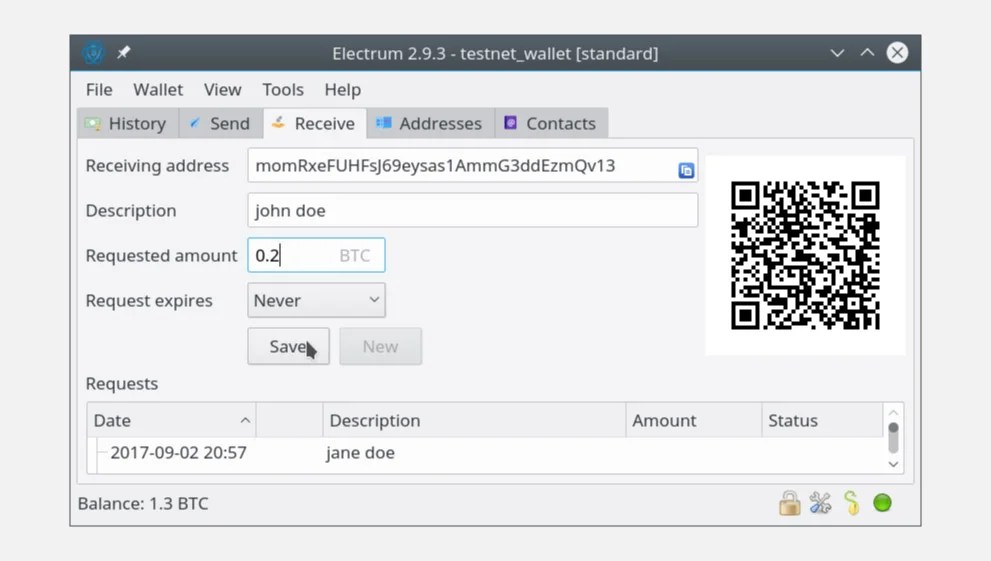Whether you’re planning to start trading or simply hold crypto coins for future investments, a cryptocurrency wallet is a must-have. So, considering your goal, you need to know how to choose the right crypto wallet.
In this industry, wallets are essential for owning and investing in cryptocurrencies, regardless of their type.
But since there are so many good options in 2022, choosing the right wallet can turn into a burden. Especially if you’re new in the crypto world.
This article will guide you toward learning all there is to know about wallets – what they are, how they work, what to consider when choosing one, and what are the best crypto wallets to get.
1. What are crypto wallets all about?

Right off the bat, we need to talk about one of the most common misconceptions about cryptocurrency wallets.
Even though crypto wallets are similar to traditional wallets, they don’t actually store your cryptocurrency.
As you already know, cryptocurrencies are decentralized. They aren’t stored in a single location but recorded in the form of transactions and stored on the blockchain.
Hence, crypto wallets are software programs that store your public and private keys. And in some cases, the software is connected to hardware similar to a USB stick.
To simply put it, they are like bank accounts. They allow you to track your balance and make transactions, all from one place.
No “real” coins are actually ever exchanged.
2. But how do these keys work?
A private key is a randomly generated string of numbers and letters. Your private key allows you to send cryptocurrency to someone else. Without it, you can’t approve transactions. So it’s crucial to keep it as safe as possible.
Losing your private key means losing your coins.
The public key is a key that others can see. It’s derived from the private key through a hash. The public key is your wallet address, and it’s used by others to send cryptocurrencies to your wallet.
Think of it like this: your public key is your bank account, and your private key is your security code. It’s fine for people to know your public key, but not your private one.
Here’s a practical example.
When a person sends you crypto coins, they are signing off ownership of those coins to your wallet’s address.
But to spend those coins, the private key stored in your wallet must match the public address they are assigned to. If the public and private keys match, the balance of the wallet will increase, while the senders will decrease accordingly.
3. Types of crypto wallets
First and foremost, cryptocurrency wallets are either custodial or noncustodial.
The custodial wallets are centralized, where a company holds your public key, private key, and funds, giving you an interface to manage your cryptos.
The noncustodial wallets are the ones you manage only by yourself.
And with that out of the way, crypto wallets can be broken down further into five categories:
- Desktop
- Online
- Mobile
- Hardware
- Paper
Desktop wallets
You can download and install desktop wallets on your computer regardless of the operating system you run. They are a relatively safe method of storage since they can only be accessed through your computer.
However, like most things nowadays, our PCs are constantly connected to the Internet. So never assume that your keys can’t get stolen.
Online wallets
Online wallets “run” on the cloud, which makes them very convenient as you can access them from virtually anywhere in the world. As long as you’re connected to the Internet, that is.
However, the online storage of the keys also poses a threat. Your keys are not fully in your control, and by centralizing numerous keys you make them more vulnerable to attacks.
It’s worth mentioning that online wallets are usually used by crypto exchanges.
Mobile wallets
Mobile wallets are the equivalent of desktop wallets, but they are designed to run on your smartphone.
Since mobile phones are such a big part of our daily lives, it’s no wonder that mobile wallets are among the most convenient types of crypto wallets. They are also notoriously user-friendly as well as quite stylish.
Another upside is that your keys are usually stored locally on your smartphone. But considering the doubtful security of most platforms, mobile wallets tend to suffer from various security shortcomings.
SIDENOTE. Certain mobile wallets also store their keys in a cloud, as a safety precaution. Make sure to thoroughly research how a wallet works before deciding which to use.
Hardware wallets
If you’re serious about storing your cryptocurrencies for the long-run, then as far as security goes, a hardware wallet is your best option.
Unlike software wallets, hardware wallets store your keys on a hardware device. Most of them are designed to be safe even when connecting them to infected computers.
The only major drawback of hardware wallets is their price. But we all know that good things don’t come cheap.
Paper wallets
As the name suggests, paper wallets allow you to store your private and public keys on print, usually via QR codes.
But it doesn’t have to be only paper. You can also print them on plastic, similar to a credit card.
As strange as it might sound, it’s actually a very safe solution to store your private keys. In order to spend money from your paper wallet, you need to first transfer it to a software wallet. This process is known as “sweeping”.
As you can tell, the main drawback is the fact that a printed wallet can easily get lost or stolen.
4. What type of wallet do you need?

Of course, choosing the best cryptocurrency wallet is a matter of preference. But selecting it should involve a set of pragmatic and practical reasons. Before anything, it’s important to ask yourself:
- Do I need daily, quick access to this wallet?
- How many currencies will I hold?
- What are the costs?
- Is security important to me?
- Am I willing to trade security for convenience?
Costs
Most cryptocurrency wallets are usually free, but some, like hardware wallets, require a small investment.
If you plan to hold onto your coins for longer periods of time (or if you’re holding large amounts of cryptocurrency), we recommend investing in a hardware wallet.
Security
Keeping your funds secure is extremely important and should be at the top of your priority list when choosing a wallet.
It’s important to carry out plenty of research about the wallet’s security features. If you want to make sure that you’ve done everything possible towards ensuring the security of your funds, then opt for a hardware wallet.
Mobility
When it comes to mobility and convenience, online and web wallets are your best friend. You can access them from anywhere, regardless of the device you’re using.
User-friendliness
User-friendliness is one of the most critical aspects of any type of crypto wallet. It can mean the difference between enjoying using the wallet and getting frustrated with it.
Generally, mobile and desktop wallets are very user-friendly, and they don’t need much work to set them up properly.
Convenience (multi-currency)
If you’re planning to hold more than one cryptocurrency, then picking a wallet with multi-currency support is a must. Usually, it’s recommended to pick a renowned wallet with many reviews and good support.
But if you’re planning to use the wallet for just one crypto coin, you should check out the coin’s website to see if they have a dedicated wallet.
We recommended hardware wallets a few times in this article, and one of their main advantages is their number of supported cryptocurrencies.
For example, two of the best-selling hardware wallets (Ledger Nano S and Trezor) boast support for over 700 coins and tokens.
5. Top cryptocurrency wallets
To make it easier for you when it comes to choosing the perfect wallet, we will take a look at some of the best wallets from each category.
The best online wallets
Coinbase
Coinbase is a crypto exchange service, so them creating their own wallet makes perfect sense. Their wallet is one of the most popular online wallets and it’s one of the best possible options for people that are starting out in the crypto world.
The Coinbase Wallet is covered by the FDIC insurance for up to $250,000 of your fiat. You can access it via any modern web browser or through the official iOS and Android apps. At the same time, it allows you to use a 2-Factor Authentication system or use Google Authenticator for more protection.
Blockchain

If you’re not a fan of Coinbase, the Blockchain Wallet is a perfect alternative.
Just like in the case of Coinbase, Blockchain.info is accessible via any modern web browser or through its official mobile applications.
It also uses a 2FA system, and it provides you with the possibility of securing your funds using a four-digit password.
The best hardware wallets
Ledger Nano S

The Ledger Nano S is one of the most successful hardware wallets currently on the market, and it has a lot going for it.
For starters, it comes with support for over 700 coins and tokens, and enough security features to keep even the most security-savvy users happy.
It has a simple design (very similar to a typical USB stick) with the addition of a small LCD screen and two physical buttons for transaction verification and confirmation purposes.
Trezor One

In case you find Ledger Nano S to be a bit too conservative about its design, you can check out Trezor One, its direct competitor.
Just like Ledger Nano S, this wallet also comes with support for over 700 coins and tokens, and lots of security features.
Opendime
Opendime is a hardware wallet that has the size of a USB, that’s why it’s also called a Bitcoin Stick (and, also, a Bitcoin Beared Bond). If you want to spend it online, you have to unseal it and then you’ll have to get another one. It may not sound very convenient, but trust me, this is the best way to secure your money!

The best mobile wallets
BitPay
BitPay is a highly reputable mobile crypto wallet backed by one of the leading Bitcoin payment firms.
It’s available for both Android and iOS, but it also comes in the form of web and desktop apps (available for Windows, macOS, and Linux).
It supports Bitcoin, major altcoins, tokens, and stablecoins, also is free to use.
In terms of security, BitPay is very well rated. It’s one of the first Bitcoin wallets to support the full Bitcoin Payment protocol. Another big advantage of the wallet is the fact that it’s very easy to use, making it perfect for beginners.
The best desktop wallets
Electrum

Electrum is a lightweight and very fast desktop (and mobile) cryptocurrency wallet. It is popular for its variety of features which make it one of the most flexible choices out there.
It provides cold storage solutions, as well as integration with some of the best hardware wallets: Ledger Nano S, KeepKey, and Trezor.
The Electrum wallet also features integration with Tor, and it has top-notch encryption technologies built within, which means it’s very secure and it protects your anonymity.
However, the Electrum wallet only supports Bitcoin. So if you’re planning to use any other cryptocurrencies, you might want to look for a different wallet.
Exodus

If user-friendliness, as well as security and convenience, are what you’re after, then Exodus is definitely a good choice.
It’s one of the best-looking cryptocurrency wallets, with a modern and stylish interface and enough practical eye candy to help you control all your crypto funds.
It supports a wide range of cryptocurrencies, including some of the most popular such as Bitcoin, Bitcoin Cash, Ethereum, Ethereum Classic, Litecoin, Dash, Zcash, 0x, EOS, Storj, and more.
Other wallets worth mentioning
While the above-mentioned wallets are market leaders, it would be a shame not to talk about upcoming players.
Guarda, for example, is an all-in-one wallet that aims to provide its users with accessibility and flexibility. The wallet is available in a web version, as a Chrome extension, as a mobile app and as a desktop app. Currently, it supports close to 50 coins, including Bitcoin, Dash, EOS, Ethereum, Litecoin, Ripple, and more.
Final thoughts
Choosing a crypto wallet is not a simple decision and you should not treat it lightly. But it will allow you to safely store and eventually spend your crypto coins.
Prepare for a lot of reading and some experimentation, as you may not find your perfect match on the first try.
Be that as it may, we hope this guide helped you and offered all the necessary guidance and basic understanding.
* The information in this article and the links provided are for general information purposes only and should not constitute any financial or investment advice. We advise you to do your own research or consult a professional before making financial decisions. Please acknowledge that we are not responsible for any loss caused by any information present on this website.
Source: https://coindoo.com/cryptocurrency-wallet/